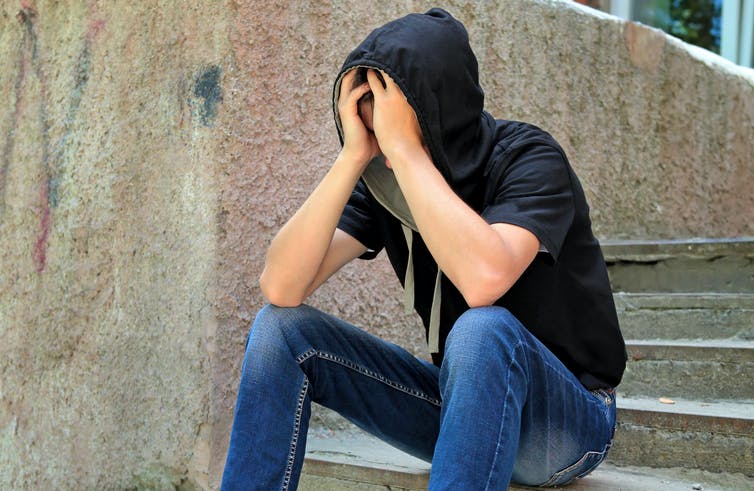By DAVID FINKELHOR, Professor of Sociology, University of New Hampshire
Sexual abuse in schools, as in other settings, is diverse in its dynamics. It can range from violent assaults, unwanted groping, inappropriate propositions and seduction, to the solicitation and exchange of sexual images and video clips. Besides being crimes, they violate the professional responsibilities of teachers and other educators and undermine the trust that the community places in the institution.
An estimated two-thirds of all cases of educator sexual abuse target high school students. The average age of victims is 15.
Educators who sexually abuse kids are not always the stereotypical career predators who take the job to access victims. Some show no sign of being anything besides ordinary people dealing with predictable life crises, depressive episodes and failing marriages.
Educator sexual abuse, because it involves trusted and often revered professionals, can create disbelief and division in whole communities and a legacy of trauma among victims and their families and their colleagues.
Four steps schools can take
Here are some best practices schools can adopt to crack down on child sexual abuse.
1. Comply with the reporting laws.
No teacher should escape from credible allegations of child sexual abuse with quiet resignation and, as can happen, a letter of recommendation – leaving them free to keep working elsewhere with kids and teens. All teachers and school officials should report even suspected child abuse. The only appropriate response is filing a police report and, if confirmed, a career-ending termination. At the same time, while background and reference checks can help ensure that people with past problems don’t get hired in the first place, only 10% of all arrests for sexual abuse of any kind entails someone with a prior record. Among educator abusers, that rate is probably even lower, making it a mistake to rely too exclusively on criminal background record checks.
2. Establish and enforce rules, offer training and provide reminders about all high-risk situations.
Students should never be alone with a teacher or coach in the staff member’s home, or car and protocols must be followed during field trips and in locker rooms. Clear policies should apply to all interactions with children on social media. These bright red lines are needed to flag the dangers and expose those who are cavalier about them.
3. Talk frankly to students and faculty about the problem and especially about the responsibility of bystanders.
Even when students and faculty are aware of suspicious behaviours or patterns, they often don’t speak up in a way that might protect a victim or root out an abuser. Whether it’s because they don’t think it is their business or are afraid of alienating their friends or colleagues, everyone can become a good bystander empowered and motivated to act.
4. Ensure that educators get help building their self-management skills.
The ability of all school staff members to restrain their own behaviour can be reinforced by training, in much the same way that psychotherapists have traditionally been taught to avoid unprofessional entanglements with their clients.
Teachers also protect kids
To be sure, reports about educators who sexually abuse kids can overshadow the truly beneficial role that so many teachers and other school staff play in helping students avoid mistreatment in general.
Teachers are the professionals who identify and report the most abused children to child protection authorities of any professionals, topping doctors, hospitals, police and social service agencies. Because they are constantly in contact with children, they are the people who are most likely to notice the bruises, poor hygiene, sadness and unexplained absences that can be tell-tale signs of mistreatment of all kinds – including sexual abuse.
And other students, not teachers, are responsible for close to three-quarters of all the sexual abuse and harassment incidents that occur in schools.
This article first appeared in The Conversation.



